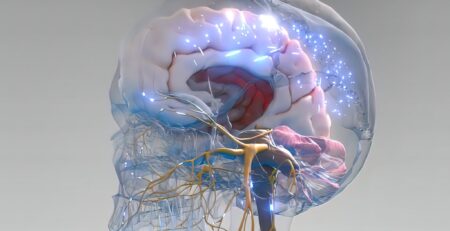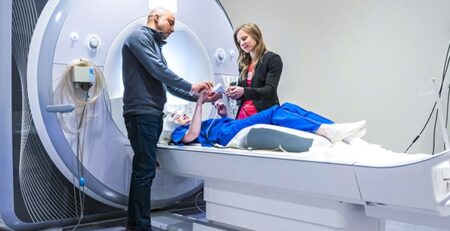This is custom heading element
[post-fields post_field=”wpcf-subtitle”]
[post-fields post_field=”wpcf-byline”]

Every year in the U.S., it’s estimated that tens of thousands of children and teens are recruited into sex trafficking. Victims can be youth of any age, gender, race or ethnicity, but traffickers often target young people in already-unstable environments, such as those who are homeless or in foster care. Young people of color and LGBTQ youth who are unwelcome in their homes are also vulnerable.
Shannon Self-Brown, a child clinical psychologist and chair of the Department of Health Policy & Behavioral Sciences in the School of Public Health, has spent the better part of a decade focused on serving the mental health needs of youth who have been trafficked in the state of Georgia. Working with a team of researchers at Georgia State and the Georgia Center for Child Advocacy, a private nonprofit agency that champions the needs of abused children, she has identified the types and extent of potentially traumatic events experienced by trafficked youth and how these events can influence mental health.
“Young people who experience sexual exploitation often have very high rates of trauma exposure, sometimes in their own homes before they are victimized by traffickers,” says Self-Brown. “As a result, these youth often experience post-traumatic stress, depression, substance abuse issues and even suicidal thoughts or self-harm.”
To help provide a path to resiliency for victims and their caregivers, Georgia State has established a new National Center on Child Trafficking (NCCT). The center is funded by a new five-year, $3 million dollar award from the U.S. Department of Health and Human Services, Substance Abuse and Mental Health Services Administration — the first-ever grant of its kind awarded to the university.
Self-Brown will lead the center with Kelly Kinnish, clinical director of the Georgia Center for Child Advocacy. The NCCT will bring together national experts in child trauma along with university resources and expertise to develop, evaluate and disseminate training and interventions meant to address the mental health needs of trafficked youth.
“Establishing the NCCT is an exciting next step in our collaborative effort to improve the response to child trafficking,” says Kinnish. “We’ve had a rewarding and effective partnership so far and this grant will build on and extend our work.”
Kinnish and Self-Brown have been collaborating for more than 15 years, examining issues that impact engagement with and access to evidence-based therapeutic practices, and developing and evaluating applications that can enhance the fit of one particular evidence-based practice, trauma-focused cognitive behavioral therapy.
As the co-director of the National SafeCare Training and Research Center, Self-Brown, along with Distinguished University Professor Dan Whitaker, expanded the national and international reach of SafeCare, an evidence-based practice designed to help young children who have experienced physical abuse and neglect. Their research helped lay the groundwork for this new university center.
The new NCCT will serve as a free resource hub for service system professionals who often work with trafficked youth, including those in child welfare, juvenile justice, foster care and mental health systems.
“This will be a centralized resource to make sure victims are able to get holistic, evidence-based care,” says Self-Brown. “It can be a hard road to recovery. It takes a team who is trained and supported to effectively implement best practices.”
Over the next five years, the team expects more than 11,000 people will be impacted by the NCCT’s work.
“It can be really challenging. We know that pathways to recovery are often complex,” Kinnish adds. “But we have practices that work. It gives you a lot of motivation and confidence that this is really going to change the lives of the children and families for the better.”
Illustration by Reid Schulz












Leave a Reply